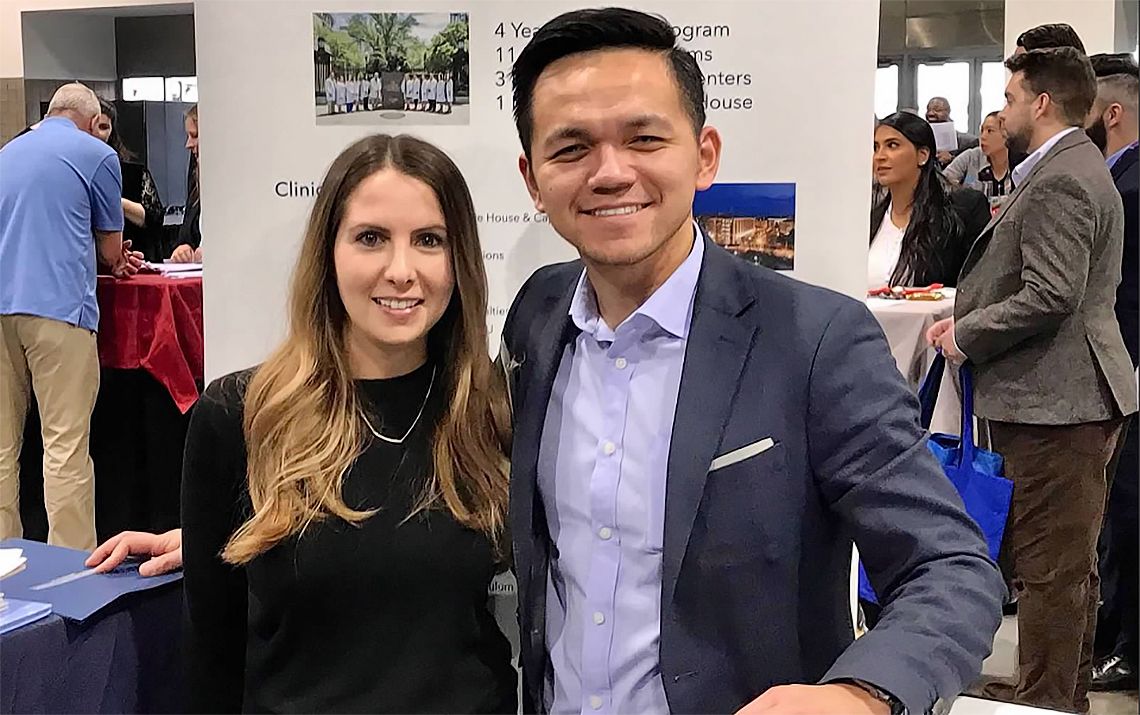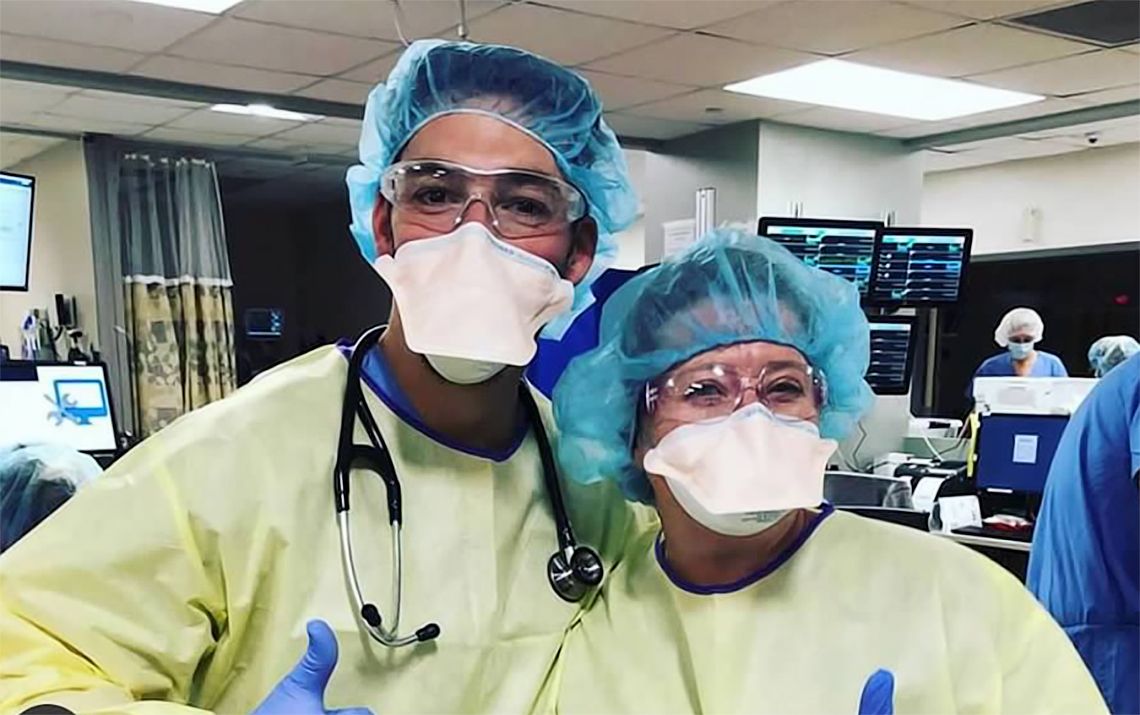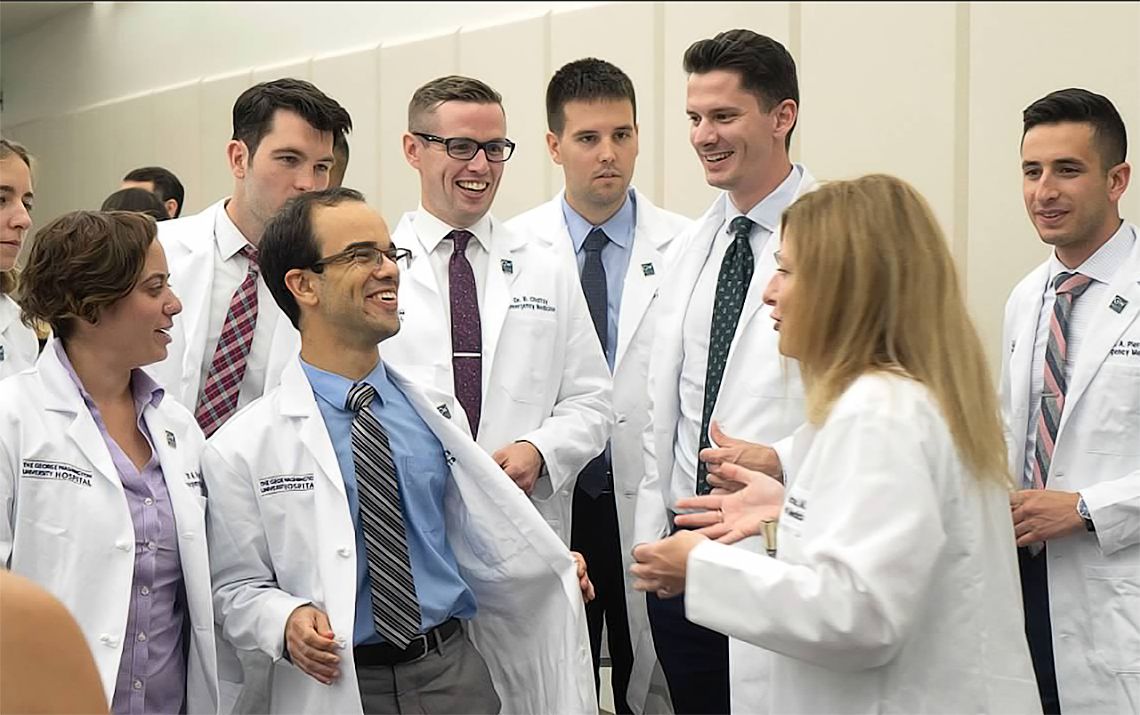Our Educational Mission
We believe our residency provides a wide range of patient care experiences to best prepare you for the clinical practice of emergency medicine in both the adult and pediatric population. Most training occurs under the auspices of the emergency department (ED), with strategic off service rotations that are high-yield and relevant. Our curriculum emphasizes critical care with GW’s blended ICU as well as Inova Fairfax’s Medical ICU, Trauma ICU, and Pediatric ICU. The clinical activities are designed to complement both the formal didactic components in our residency and independent learning activities.
In addition to training our residents to be superb emergency physicians, our program is also designed to:
- 1. Provide significant career and leadership development, and
- 2. Train our residents to be educators in emergency medicine.
Over the four years of our residency program, residents are given both the time and faculty mentoring necessary to find their own niche within emergency medicine. Residents are exposed to subspecialty and administrative areas of emergency medicine early in training. As each resident progresses through the program, their clinical shift requirement reduces to allow for professional development and involvement in longitudinal projects. In addition, we provide ample elective time for focused experiences relevant to your individual needs. Residents at GW are exposed to multiple career development opportunities, are encouraged to be creative and innovative, and are individually mentored to help guide their career development and to help them discover their passions in our field. During the fourth year, our residents complete a unique Mini-Fellowship Project, which encompasses their interests and helps them best in their future career. Recent examples included working with the Pan American Health Organization (PAHO) and working with the Department of Health and Human Services (HHS). We feel strongly that this helps our graduates have successful careers with a high degree of professional satisfaction.
All GW residents are trained to become educators during their four years in our program. We support and deeply value the development of our resident’s educational skills throughout their training. We aim to give all graduates from our program the skills to become effective and beloved educators in multiple settings, from the bedside to the national EM platform, in order to find joy and to perpetuate the ideals of medicine.
- Bedside educators: Learning Emergency Medicine extends beyond the classroom to the bedside. Our faculty are experts in on-shift bedside education. Each shift in the Emergency Department will have you learning something new, no matter your level of training.
- RATS: Residents As Teachers: Residents are responsible for teaching medical students, APP students, more junior residents, and off-service residents in the Emergency Department during a shift. We believe being a strong physician includes being a strong teacher and this is engrained throughout training.
- Presentation mentorship – Residents are individually mentored on all presentations throughout training by a faculty member in our Educational Division. These faculty mentors help in presentation development and formally critique each resident’s teaching skills in order to aid their development into a confident and effective educators.
- Teaching Resident (TR) - Residents participate in a four-week rotation during PGY3 year in which they become the TR for the ED. They work closely with the Clerkship Director and are responsible for teaching the rotating students and learning activities within the ED itself.
Our goal at GW is to develop happy, passionate emergency medicine physicians who want to provide excellent health care on multiple levels.
- Our Clinical Sites
- Post Graduate Year 1
-
The PGY-1 year is designed to develop residents a strong, multi-disciplinary foundation of knowledge as our interns make the transition from medical student to doctor. We provide an intensive introduction to both critical care and emergency bedside ultrasound to establish excellent baseline skills to use throughout residency.
- Orientation - 4 weeks
- Emergency Medicine - 6.5 weeks
- Trauma - 4 weeks
- Pediatric EM - 4 weeks
- ICU - 4 weeks
- Internal Medicine - 2 weeks
- Adult Anesthesia - 2 weeks
- Obstetrics - 2 weeks
- ED Ultrasound - 2 weeks
- Vacation - 4 weeks
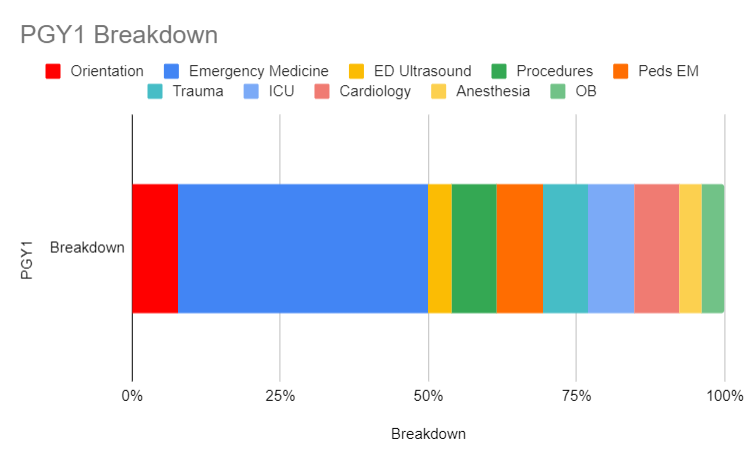
- Post Graduate Year 2
-
In the PGY-2 year, residents spend significant time in the ED with an emphasis on mastering procedures and increasing proficiency in general emergency medicine. Starting during their PGY-2, residents also have longitudinal pediatric emergency medicine shifts integrated in their ED months throughout the year at both Children’s National Medical Center and Inova Fairfax Hospital. This year also introduces sub-specialty areas within Emergency Medicine and offers the opportunity to participate in electives.
- Emergency Medicine - 34 weeks
- ICU - 4 weeks
- Emergency Medical Services - 2 weeks
- ED Toxicology - 2 weeks
- Orthopedics - 2 weeks
- Pediatric Anesthesia - 2 weeks
- Elective - 2 weeks
- Vacation - 4 weeks
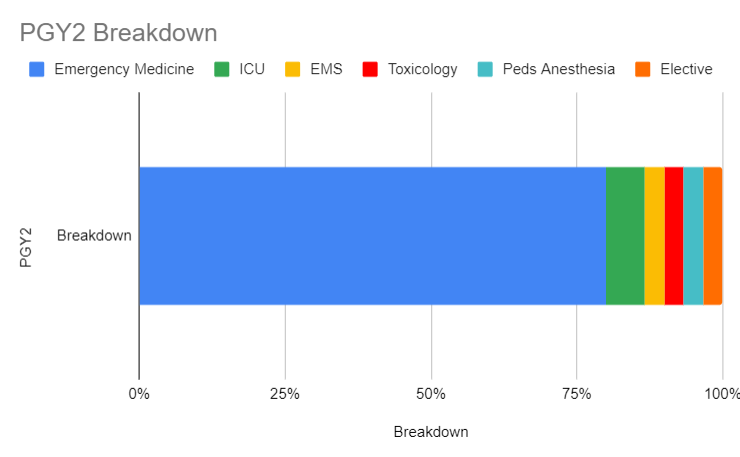
- Post Graduate Year 3
-
The PGY-3 year provides opportunities to master the care of the multiple critically ill patients simultaneously. PGY3 residents are involved in multiple educational endeavors in the department and a longitudinal QI project. There is an increase in elective time for residents to pursue their interests and career development.
- Emergency Medicine - 32 weeks
- ICU - 4 weeks
- Medical ICU - 4 weeks
- Trauma ICU - 4 weeks
- Teaching resident/ED Administration - 4 weeks
- Elective - 5 weeks
- Vacation - 4 weeks
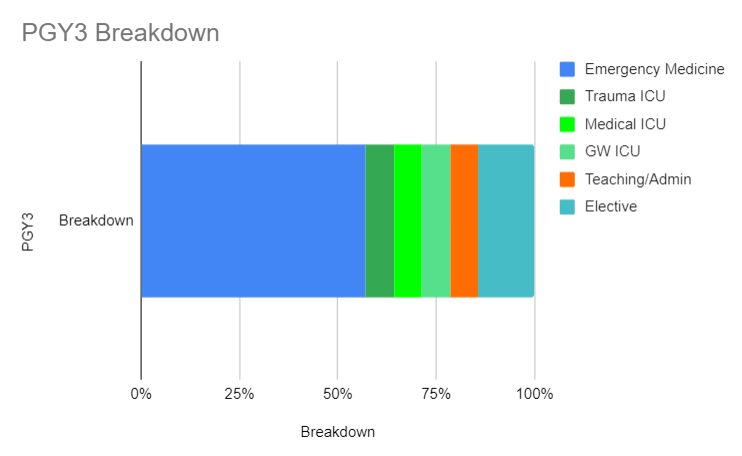
- Emergency Medicine - 32 weeks
- Post Graduate Year 4
-
The PGY-4 resident is treated as a junior faculty member in the ED with a significant teaching and administrative role in addition to patient care responsibilities. Our senior residents learn not only how to care for any type of patient that comes through the door but how to manage the flow of the ED. The clinical shift requirement is reduced (14 shifts/block) to give academic protected time to complete the Mini-fellowship project. There is additional elective time as well.
- Emergency Medicine - 40 weeks
- Pediatric ICU - 4 weeks
- Elective - 5 weeks
- Vacation - 4 weeks
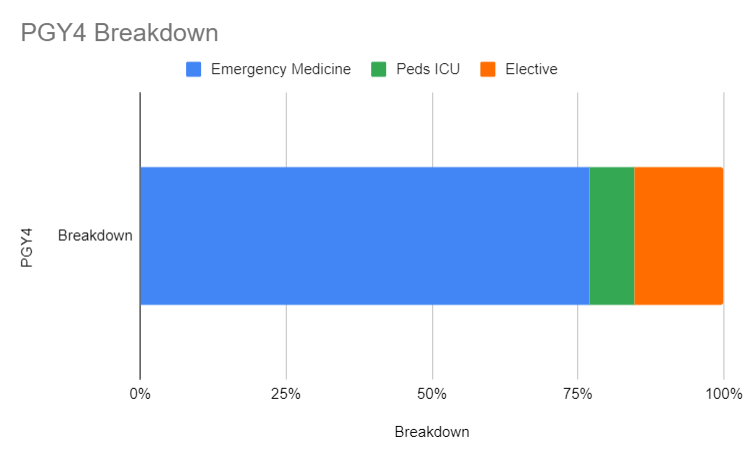
- Mini-Fellowship Project
-
The George Washington University Department of Emergency Medicine requires its' residency graduates to complete a Mini-Fellowship during their training in order to foster interests outside of clinical Emergency Medicine, supplement their future careers, and create well-rounded Emergency Physicians. The graduate creates a niche in the area of their choosing in the field of Emergency Medicine. As a result, their Mini-Fellowship will yield a portfolio that may serve as a product of their niche and can enhance their CVs for job opportunities.
